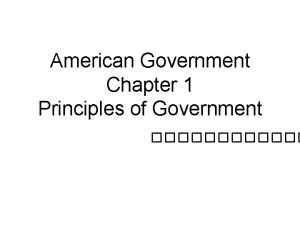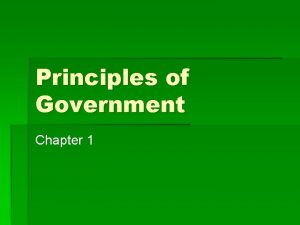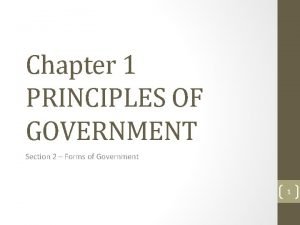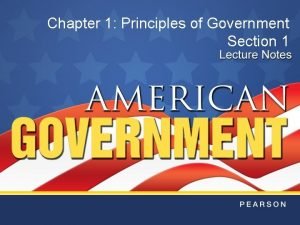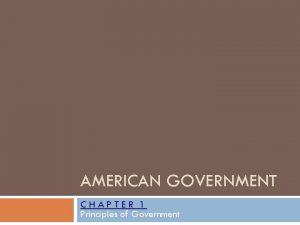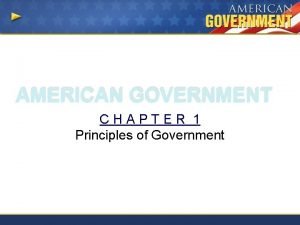AMERICAN GOVERNMENT Chapter 1 Principles of Government AMERICAN




- Slides: 4

AMERICAN GOVERNMENT Chapter 1: Principles of Government

AMERICAN GOVERNMENT FUNDAMENTALS Government - the institution through which a society makes and enforces its public policies Public Policies – all of those things a government decides to do Legislative Power – the power to make law Executive Power – the power to execute, enforce, and administer the law Judicial Power – the power to interpret laws, to determine their meaning, and to settle disputes that arise in society Constitution - the body of fundamental laws setting out the principles, structures, and processes of a government Dictatorship – when power is held by a single person or a small group

AMERICAN GOVERNMENT FUNDAMENTALS Democracy – when the supreme power rests with the people State – a body of people, living in a defined territory, organized politically, and with the power to make and enforce law without the consent of a higher authority Autocracy – a government in which a single person holds unlimited political power Oligarchy – a government in which the power to rule is held by a small, usually selfappointed elite Unitary Government – centralized government where all powers are held by a single, central agency. The central government can create local units of government for convenience Federal Government – one in which the powers of government are divided between a central government and several local governments

AMERICAN GOVERNMENT FUNDAMENTALS Confederation – an alliance of independent states Presidential Government – the executive and legislative branches of government are separate, independent of one another, and coequal Parliamentary Government – the executive is made up of the prime minister and that official’s cabinet. Free Enterprise System – economic system characterized by the private ownership of capital goods, investments made by private decision and not by government, and success or failure determined by competition in the marketplace Law of Supply and Demand – when goods are plentiful, prices tend to drop, and when goods are scarce, prices tend to rise
